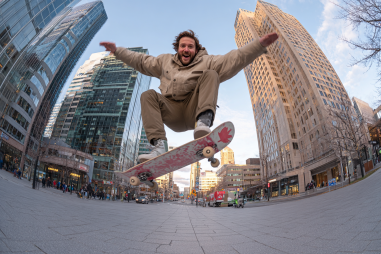Skateboarding is often celebrated for its thrilling physical feats and stylish tricks, but beneath the surface lies a powerful mental game. Mastering advanced skateboarding skills is as much about sharp mental focus, confidence, and overcoming psychological barriers as it is about physical practice. Whether you’re aiming to land a complex trick or simply improve your flow, developing strong mental focus can dramatically elevate your skateboarding performance.
The Importance of Mental Focus in Advanced Skateboarding
When performing advanced tricks, your mind plays a critical role in coordinating your body’s movements and keeping you balanced. Skateboarding challenges your ability to stay present, process multiple sensory inputs, and act decisively under pressure. Without mental focus, even the most practiced physical skills can falter at crucial moments.
In fast-paced skate sessions and competitions, distractions and nervousness can cloud your judgment. Focus allows you to tune out external noise, zero in on the task at hand, and execute maneuvers with precision. It is the bridge between your training and performance — the mental control that transforms potential into actual success on your board.
Techniques to Improve Concentration and Reduce Anxiety
Improving concentration is a pivotal step toward building mental toughness in skateboarding. Here are some practical ways to sharpen your focus and manage pre-skate nerves:
- Deep Breathing Exercises: Taking slow, deep breaths before attempting tricks helps calm your nervous system and clear your mind.
- Routine Development: Establish a consistent warm-up and pre-trick ritual to signal your brain that it’s time to concentrate.
- Limiting Distractions: Practice in environments that minimize noise and interruptions to simulate competition scenarios slowly.
- Mindfulness Drills: Practice being fully engaged in the moment during skate sessions by focusing on the sensations of your feet on the board or the rhythm of your movement.
Regular incorporation of these techniques helps reduce anxiety and conditions your brain to maintain steady focus even during high-pressure attempts.
Visualization and Goal-Setting Methods
Visualization is a powerful mental tool used by top athletes to enhance performance. Before you hit the skatepark, try imagining the entire trick in your mind—how your feet will move, the timing, the balance, and the landing. This mental rehearsal builds neural pathways similar to physical practice, making your body more prepared to execute.
Couple visualization with clear goal-setting:
- Short-Term Goals: Set achievable targets like perfecting a basic move or improving balance within a week.
- Long-Term Goals: Aim for bigger accomplishments such as landing a new trick or progressing through a difficult combo within a month or season.
- Process Goals: Focus on the elements of the trick rather than just the outcome, such as improving foot placement or pop height.
Setting these layered goals keeps motivation high and your mental focus aligned with your practice sessions.
Managing Fear and Risk-Taking During Tricks
Fear is a natural response when pushing boundaries, but successful skateboarders learn to harness it rather than be controlled by it. Managing fear begins with understanding the risks and preparing adequately.
Gradual exposure to bigger challenges can desensitize fear over time. Break down complex tricks into smaller components and master each phase before putting it all together. This approach builds muscle memory and increases your confidence.
Remember, risk-taking is inherent in skateboarding, but calculated risk-taking is key. Learning to assess when to push forward and when to step back until you are ready creates a healthy, sustainable progression path.
Building Confidence Through Gradual Challenges
Confidence is the fuel that powers your mental focus and willingness to take risks. One effective way to build genuine confidence is to embrace incremental challenges, which nurture skill and trust in your abilities.
Start by honing fundamentals and consistently succeeding at smaller tricks. Celebrate these wins, however minor they seem, and use them as stepping stones toward more complex maneuvers. With each successful attempt, your self-belief strengthens.
Additionally, surrounding yourself with supportive peers and mentors in the skateboarding community can provide encouragement and constructive feedback, further bolstering confidence.
The Role of Mindfulness and Meditation
Mindfulness and meditation practices have gained traction among athletes because they cultivate awareness and emotional regulation. For skateboarders, these techniques enhance the ability to stay calm, focused, and resilient during demanding sessions.
Just a few minutes of meditation daily can help:
- Increase concentration by training your brain to focus on a single point or breath.
- Reduce stress and racing thoughts that interfere with performance.
- Improve recovery by fostering relaxation after intense physical efforts.
Try integrating short mindfulness sessions into your daily routine or between skate sessions to maintain mental clarity and readiness.
How Mental Focus Translates to Physical Performance
The mind-body connection in skateboarding is profound. When your mental focus is sharp, your brain sends clearer, more coordinated signals to your muscles, improving timing, balance, and reaction speed. This synergy allows you to execute tricks more fluidly and with greater control.
Mental mistakes such as hesitation or self-doubt often manifest physically as shaky landings or missed catches. Conversely, concentrated athletes demonstrate smoother movements, faster adjustments mid-air, and more successful landings. The calm confidence developed through mental training supports risk-taking that doesn’t compromise safety or technique.
Stories of Pro Skateboarders and Their Mental Strategies
Many professional skateboarders credit their success not just to physical training, but also to mastering their mental game. For instance, Tony Hawk has spoken openly about using visualization techniques before competitions to mentally rehearse tricks, which helped him stay calm and focused under pressure.
Another example is Nyjah Huston, known for his intense mental discipline and mindfulness practice. He emphasizes controlling fear and maintaining positive self-talk to overcome the setbacks of failed attempts.
These stories highlight that even at the highest level, skateboarding requires a dedicated mental approach to consistently perform and progress.
Cultivating a Champion’s Mindset for Skateboarding
Developing advanced skateboarding skills is a journey that demands more than just physical practice. By cultivating mental focus through techniques like mindfulness, visualization, controlled risk-taking, and gradual confidence-building, you create a solid foundation for success.
The mental game enables you to stay present, overcome fear, and transform challenges into opportunities for growth. Embrace these mental strategies and watch your skateboarding skills reach new heights—because in skateboarding, a champion’s mind is just as critical as a champion’s body.






